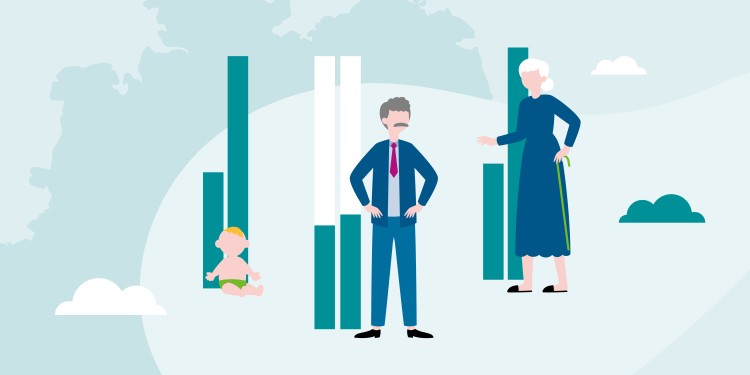
"More and more people need long-term medical care"
Since statistical records began to be kept at the end of the 19th century, the life expectancy of new-born babies has more than doubled. The most important reasons for this are not only improvements in the fields of hygiene, food and housing, but also better working conditions, higher levels of prosperity and improved medical care. The growing number of older people in Germany means that healthcare services are in greater demand. This also has consequences for social security systems and medical care. “Demographic change has a central impact on our health service. An increasing number of people need long-term medical care,” explains Prof. André Karch, deputy director of the Institute of Epidemiology and Social Medicine at the University of Münster. “Although there is not yet any real undersupply, some medical capacities need to be more clearly adapted to developments within the population,” he says.
One example of this is the expansion of geriatric wards for treating older patients with multiple illnesses typical for their age. Also, an increasing number of general practitioners (GPs) are retiring, with no younger doctors there to take over, especially in rural areas. There exists a variety of incentives to encourage students – while they are still training to be doctors – to go into general practice. Another element is health prevention: this could reduce the burden on people created by chronic illnesses, and the costs of later treatment could be reduced.
At the same time, there is a considerable increase in the need for care. “In Germany there is a lack of nursing staff,” as André Karch points out. “This is because of a wide range of factors – not least, a lack of appreciation of the work done by nursing staff.” Incorporating telemedical and technical solutions, he adds, such as monitoring vital parameters, can help to make up for the lack of nursing staff and optimise the quality of the care provided. “Interdisciplinary collaboration should also continue to be promoted,” Karch says.
Demographic ageing developments not only entail many challenges for further developing the health services. Research topics and research funding are also changing. In special studies, researchers are increasingly concentrating on older people and their illnesses such as late-life depression, dementia or strokes.
This article was first published in the University newspaper wissen|leben, No. 1, 2 February 2022.
